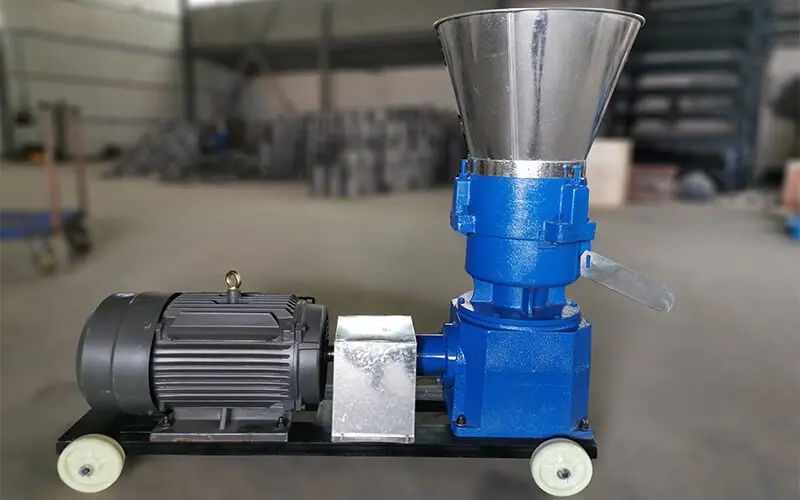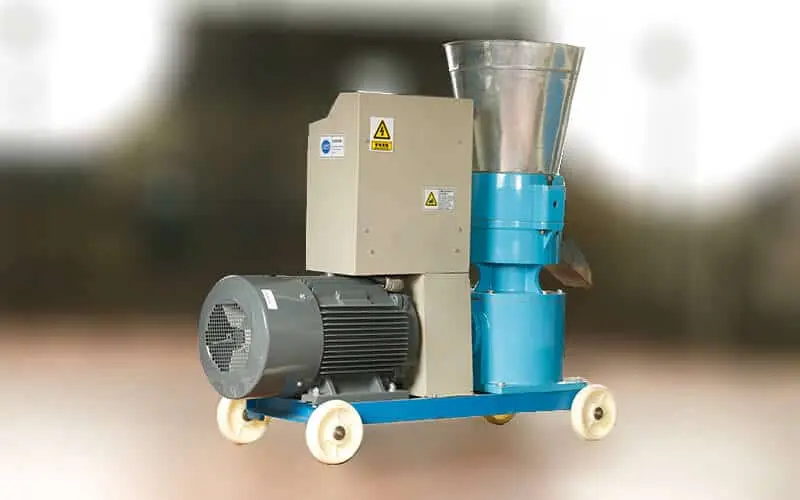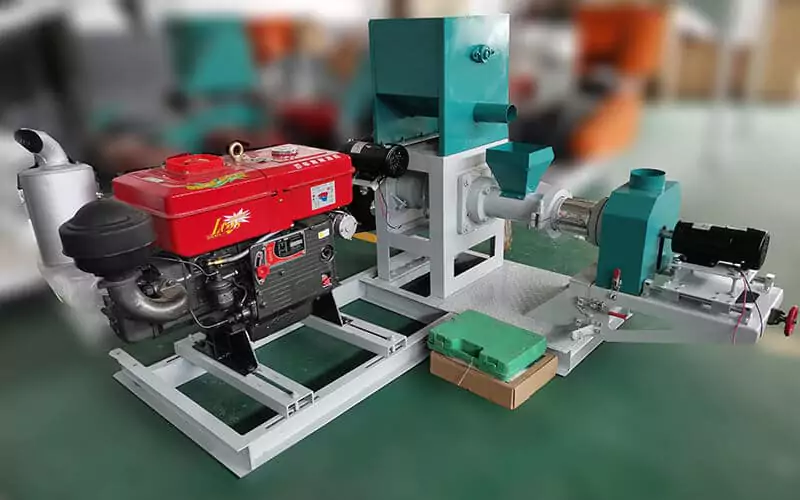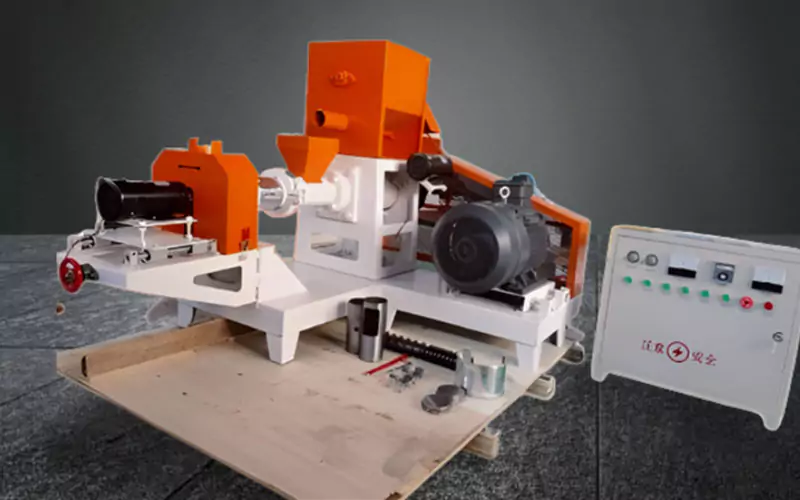Feed Pellet Machine in Malawi
For farmers across Malawi, from the tobacco fields of the Central Region to the fish farms of Lake Malawi, the high cost of animal feed is a major barrier to growing your business. Relying on commercial feed can be expensive and the quality is not always guaranteed. An on-farm feed pellet machine in Malawi is a powerful tool for Malawian farmers to take control. It allows you to use your own local crops to create affordable, high-quality feed for your livestock and poultry.
This guide is written for you, the Malawian farmer. We’ll cover the benefits, the best types of machines for local conditions, where to find them, what to think about before you buy, and how to consider the costs.
Why a Pellet Machine is a Smart Investment for Malawian Farmers
Investing in a feed pellet machine provides clear, practical advantages for farms in Malawi.
Lower Your Feed Costs with Local Malawian Ingredients.
This is the biggest benefit. You can make your own feed using local and often cheaper raw materials. These include common Malawian crops and by-products like maize (chimanga), soybeans (soya), groundnuts (ntsungu), and maize bran (madeya).
Improve the Health & Growth of Your Livestock.
A pellet machine helps you create a consistent, balanced feed. This means better nutrition for Malawi’s important poultry (nkhuku), goat (mbuzi), and fish farming sectors. Healthier animals grow faster and are more productive.
Reduce Feed Waste on the Farm.
When you feed animals with loose mash (unga), they can be picky. They often scatter the food on the ground, where it is wasted. Pellets are solid, so each bite is a complete meal. This ensures more of the feed is actually eaten by your animals.
Create a Business Opportunity in Your Village.
Once you start making high-quality feed for your own farm, you might find an opportunity to sell surplus pellets. You can supply other local farmers with quality, affordable feed. This can create a new source of income.


What Feeds Can You Make? For Malawi’s Key Livestock
A good feed pellet machine is versatile. You can make feed for many different animals common in Malawi:
- Poultry Feed: For the massive and growing broiler and layer industry in Malawi.
- Goat & Pig Feed: For small livestock, which are a vital part of many rural households.
- Fish Feed: For the important aquaculture sector on Lake Malawi and other water bodies, especially for species like Chambo (Tilapia).
- Cattle Feed: To supplement grazing for dairy and beef cattle.


Types of Machines Best Suited for the Malawian Context
It is important to choose a machine that fits the local conditions, especially the power supply.
- Diesel Engine & Petrol Engine Flat Die Mills: “These are often the most practical and reliable choices for many farms in Malawi. With challenges in consistent electricity supply from ESCOM in many rural areas, having a machine with its own engine gives you the freedom to work anytime.”
- Small Electric Flat Die Mills: These are a good choice for farmers in or near the main cities like Lilongwe, Blantyre, and Mzuzu. In these areas, the power supply is generally more stable.
- PTO-Driven Pellet Mills: “This is a very smart choice for farmers who already own a tractor. It uses the tractor’s engine for power, making it a versatile option that doesn’t rely on the grid.”
Finding Suppliers in Malawi: Where to Look
Finding a good, reliable supplier is a key step.
Major Cities are Your Starting Point: Lilongwe and Blantyre.
These are the primary commercial centers where you will find importers and dealers of agricultural machinery.
Check with Established Agricultural Supply Companies.
Well-known farm supply companies (like Farmers World or Agora) are a good place to start asking about reliable machinery.
Use Online Searches & Farmer Networks.
You can search on local online platforms. You can also ask for recommendations in Malawian farming groups on Facebook or WhatsApp.
Considering Importing vs. Buying Locally.
Buying from a local dealer in Malawi means you get some level of support and service. Importing directly might seem cheaper. However, it involves complex logistics with the MRA (Malawi Revenue Authority) and no local help if the machine breaks down.
A Practical Checklist for Buying a Machine in Malawi
Think carefully before you buy. Ask yourself these important questions:
What animals are you feeding?
This is important because it determines the size of the pellets you need to make.
How big is your farm?
This will determine the capacity of the machine you need. This is measured in kilograms per hour.
What is your real power situation?
“This is the most important question for a farmer in Malawi. Is your ESCOM power reliable, or is a diesel or PTO machine the only way for you to operate your business without interruptions?”
Look for a Strong, Simple, and Repairable Machine.
“Getting specialized spare parts can be very difficult and slow. A robust machine with a simple, mechanical design that a local mechanic (fundi) can understand and repair is often the best long-term investment.”
Ask About Spare Parts.
“Before you pay, ask the supplier in Lilongwe a direct question: ‘If I need a new die or roller, do you have it in stock here in Malawi, or does it have to be ordered from another country? How long will that take?’ The answer is very important.”
Cost & Financing Considerations in Malawi
- Typical Price Range (in Malawian Kwacha – MWK). Because most of these machines are imported, prices can fluctuate greatly with the exchange rate. To give a very rough idea, a small-scale, basic machine will likely cost several hundred thousand Malawian Kwacha and go up from there. It is absolutely necessary to get direct, current quotes from suppliers.
- Looking for Financing Options.
- You can inquire about asset financing or agricultural loans from commercial banks in Malawi.
- It is also a good idea to look into programs from development banks or government initiatives aimed at promoting agricultural mechanization.
- You should also check with your local SACCOs (Savings and Credit Cooperatives) as a potential source of financing.
Conclusion
For Malawian farmers, a feed pellet machine is a powerful investment in self-reliance. It helps you control your biggest cost. It also helps you improve the nutrition of your animals using local ingredients. This helps you build a more profitable farm. With careful planning and by choosing the right machine for your conditions, you can take a major step towards greater success in your farming business in Malawi.
FAQ About Feed Pellet Machine in Malawi
What are the most common ingredients for making chicken feed in Malawi?
A: The most common and affordable ingredients are locally grown crops. Maize (chimanga) and maize bran (madeya) are the main energy sources. For protein, soybeans (soya) are the most important ingredient.
Is a diesel or electric machine a better choice for a farm in Malawi?
A: A diesel engine or a tractor PTO-driven machine is often a safer and more reliable choice for many farmers in Malawi. This is due to the challenges with the public power supply. If you are in a city with a very stable power grid, an electric machine can be cheaper to run.
Where is the best place to start looking to buy a machine in Malawi?
A: A good place to start your search is with established agricultural equipment dealers in the major commercial cities, Lilongwe and Blantyre.
Can I make floating fish feed for Chambo with these machines?
A: No. The standard machines described here are pellet mills, which make sinking feed. To make the floating feed that is best for Chambo (Tilapia), you need a special, more expensive machine called a fish feed extruder.
Is it easy to get spare parts for these machines in Malawi?
A: It can be challenging. This is why it is very important to buy from a supplier who has a physical presence in Malawi. They should be able to show you that they keep essential spare parts, like dies and rollers, in stock. Choosing a simple, robust machine is also a very smart idea.

